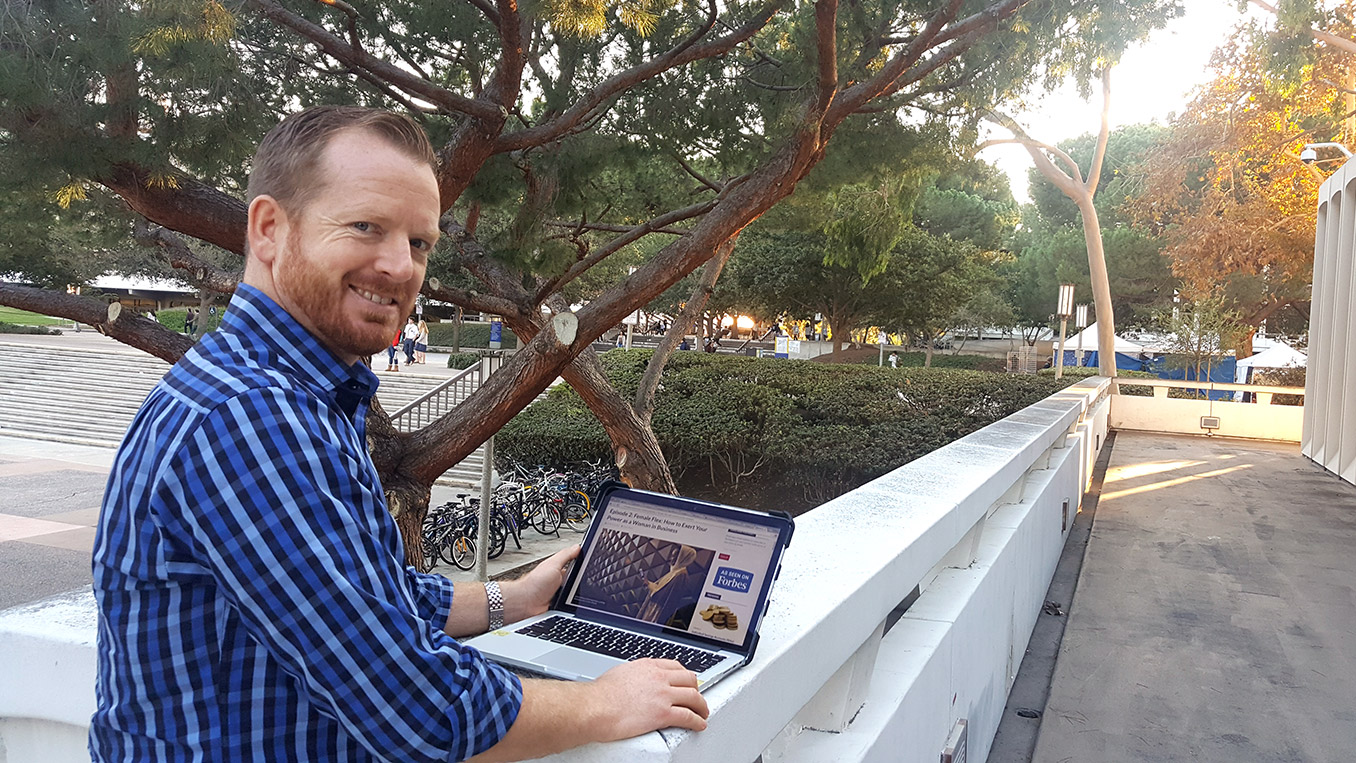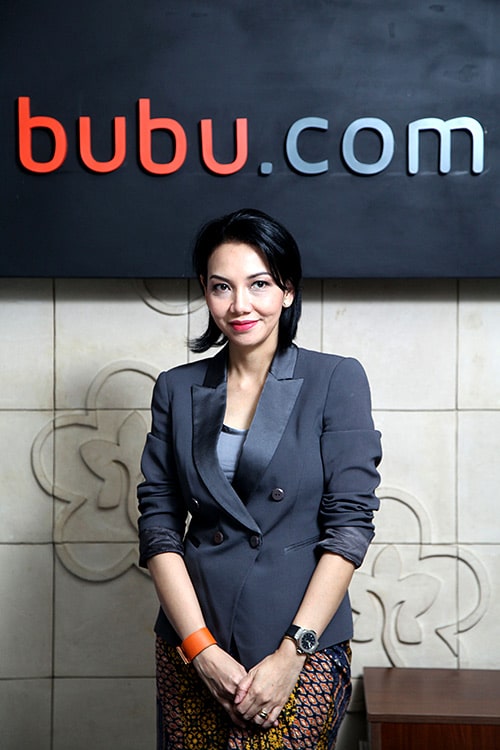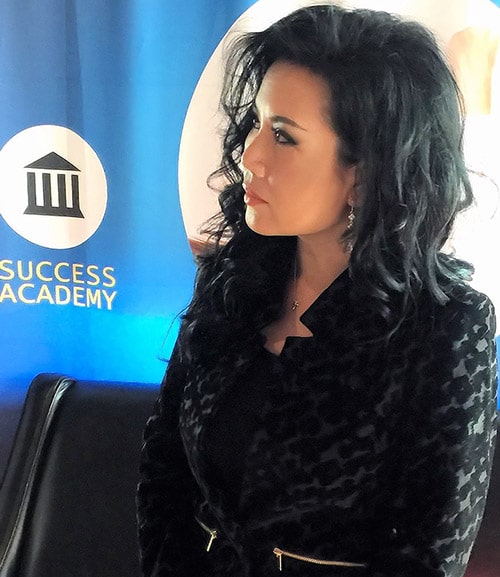Talking with Jenny Q. Ta and Shinta Dhanuwardoyo, our conversation began with women’s empowerment in the boardroom, then turned to leveraging knowledge as power. As we talked more about women in startups, there was a discussion around those women who aspire to work in startups, and those women who aspire to get into startup finance.
Ryan: Is it getting better for women who want to get involved with startups or is it still the same?
Jenny: I’ll start a little bit first, Shinta, and then you are welcome to dive in.
Shinta: Sure.
Jenny: Personally to me, I think it’s gotten a little bit better. Okay, but not a whole lot … If I were to rate it, a hundred percent being perfect, we’re still under ten percent. That’s in my opinion. There’s still such a huge ladder to climb, but we are making progress.
A lot more women now are turning to the VC world and becoming VCs themselves with hopes that those women will also help other women. It wouldn’t make any sense that the women come out to become VCs and fund other men, then women founders would continue to be suppressed in funding.
Shinta: Yeah.
Ryan: Do you see more money going to startups that either have females involved or are led by females? You had mentioned the VC women. Are they looking to give back specifically for women-led startups?
Jenny: Everybody is still looking towards Silicon Valley. Everybody moves to Silicon Valley, so Silicon Valley is like God. Those guys up there, there can only be so much money in Silicon Valley. That’s why Shinta and I launched VCNetwork.co. The thing about it is, the tech world and VC world are still two different worlds. I can say that I’m more on the VC world, even though Shinta has a lot of experience as well. We put our minds together and we thought, “Well, now it’s global.” If there are more Silicon Valleys around the world, okay, then maybe all of these startups that you talked about … They don’t need to run to Silicon Valley anymore.
They can go to Santa Monica, which is where we’re at. They even could go to Jakarta, if we set up a Silicon Valley in Jakarta or Asia or Europe. It becomes more like if we have more Silicon Valleys around the world, Southeast Asia, then these startups have more places to go. At that time, Silicon Valley will say, “Well, wait a minute. Last year, we had a hundred thousand startups pouring in here and we got to pick and choose. This year, we’ve got ten thousand. Where did they all go?”
Then the Silicon Valley guys are going to think twice. Instead of startups running after them, my lingo with Shinta is, “Even if you have cash, if you have no startups to invest in, your cash is meaningless,” right?

Ryan: Are you saying it is all about supply and demand.
Jenny: Exactly … Supply and demand.
Ryan: Distributing the demand will help to increase the power of …
Jenny: Bingo.
Ryan: The supply. The power for those people that are maybe underrepresented or underserved because you’re diluting it. Now what is your opinion on Orange County as a hub? I mean, you live here … Does it have traction to become a new Silicon Valley?
Jenny: To answer your question, even though I live in Orange County, Santa Monica is going to fly faster.
I believe with the right strategy and the right teams in Santa Monica, like Brian MacMahon and Expert DOJO, things are on the right path. That’s why I’m getting more involved to help Expert DOJO gain traction. I believe Santa Monica and L.A. [Silicon Beach] can literally trump Silicon Valley as the next hot spot for startups.
Ryan: What about the climate for startups in Orange County?
Jenny: I would say Orange County … It’s still weak. If L.A. and Santa Monica pick up strongly, it’s going to pull Orange County with it. Orange County is a beach city — rich people driving nice cars, relaxed, retired. There aren’t a lot of startups here, but LA is where all the players are. I would vote for LA, even though I live in Orange County.
I respect all these hubs … Shinta’s probably going to jump start one in Jakarta. Hubs without VC partnerships will always remain as hubs — empty hubs. That’s why a VC background, and with this program that I mentioned to you that Shinta, Brian, and I were trying to start, will propel the VC world down here in Orange County. There’s a lot of money here.
I’m Vietnamese-American but live in the U.S. and Shinta is Indonesian and lives Jakarta. With our backgrounds, Shinta and I, can tap into the large amounts of money in Asia. When there are hubs that we connect it with, real money, large strong VCs, like VCs in Silicon Valley, that’s the formula to success. If we’re creating way too many hubs, but we’re ignoring the connections with true strong VCs out there and getting the money, it would still be irrelevant. Shinta, you can share a little bit how VC Network is opposite from AngelList? You want to share a little bit of that?
Shinta: Yeah. Well, what we do in VCNetwork.co … We studied AngelList.
The number was almost maybe seven to nine hundred thousand applicants. Their actual funding ratio is very small.
Ryan: Wow.
Shinta: Well, yeah. We studied that, so we want to kind of change the way that funding works.
Jenny: A reverse.

Shinta: We see ourselves like a virtual “Shark Tank”. We really want to match the startup with the right venture capitalist. Here is how it works. The startup will usually send us their pitch deck. They’ll probably tell us which venture capital they want to be linked up with, so we look at it and see whether it’s a fit or not. From there, we make the connection between the venture capital and the startup.
Jenny: Another way of putting in it is, AngelList is a bottom up approach — meaning that they go out and seek startups to apply.
Ryan: Right.
Jenny: We have a top down approach. A top down approach is, we go out there and we just get VCs. Shinta and I spend more time going out and shaking hands with VCs around the world than most people do.
Ryan: It’s a double-sided market, but you’re making sure you get the side that attracts the other.
Jenny: Exactly.
Ryan: The more you can make the investment about the opportunity, the more it evens the playing ground.
Jenny: Yeah. Silicon Valley is like AngelList in-person.
Ryan: I’m sure those VCs are feeling a bit disconnected if they’re not in front of curated startups. I know that the more fragmentation there is with the VCs, the more they’re chasing after deals that are running other places.
Jenny: Right.
Ryan: You’re really doing a service for both sides. You’re helping to carry that conversation to a captive audience that really is serious about it versus “I’m on AngelList just to …”

Jenny: Right. To elaborate what Shinta was saying earlier when we were matching … To clarify that a little, matching means for example when … Let’s just say that startup does, I don’t know, name … Biotechnology sector. In our database, there are X number of VCs who specialize in biotechnology. That one startup would just be guided to that group and in that group, our algorithm may pick certain ones. Even manually, we can review that, too. That one VC would not be bombarded like Silicon Valley with hundreds of thousands of decks and business plans to review and analyze.
Ryan: It’s quality, not quantity.
Jenny: Yeah. You’ll get one at a time and you’re probably going to read it. You see my point?
Ryan: Yeah.
Jenny: That is our strategic mission for VCNetwork.co.
Ryan: I love it.
Jenny: I don’t think there’s another one out there.
Ryan: Well, there shouldn’t be because you guys’ll just take it and dominate it.
Jenny: Exactly, and it’s by two women.
Shinta: Yeah.
Jenny: Two women halfway around the world.
Shinta: We’ll also populate the database with a venture capitalist from the Southeast Asia and Asia side as well. That’s my next thing to do is to also help populate the database with the venture capitalists that are in Asia.
Jenny: Yeah.
Shinta: I’m based in Jakarta, which is Indonesia. We’re actually the biggest country for Southeast Asia. The startup scene just started probably three, four years ago, so we’re new, but because we’re a mobile first country and we’re about two hundred and fifty million in population, it’s really happening finally here in my country. I’ve been in the industry for twenty years, so I’m kind of excited to see it’s really happening here. There’s a lot of investment as well going on here. A lot of the venture capital money also they’re looking … To invest in Southeast Asia and Asia itself.
Jenny: Not many people know that Indonesia ranks as the fourth largest for Facebook users.
Shinta: Yes, Facebook users.
Jenny: Huge Facebook users. Huge.
Ryan: Yeah. That’s great.
Jenny: Yeah, and Indonesia is ranked fourth largest populous country in the world.
Takeaways:
- VCNetwork.co focuses on a large database of VCs rather than startups
- Innovating the way startups are funded
- Broadening the market while ensuring that startups have a better chance at being funded.





